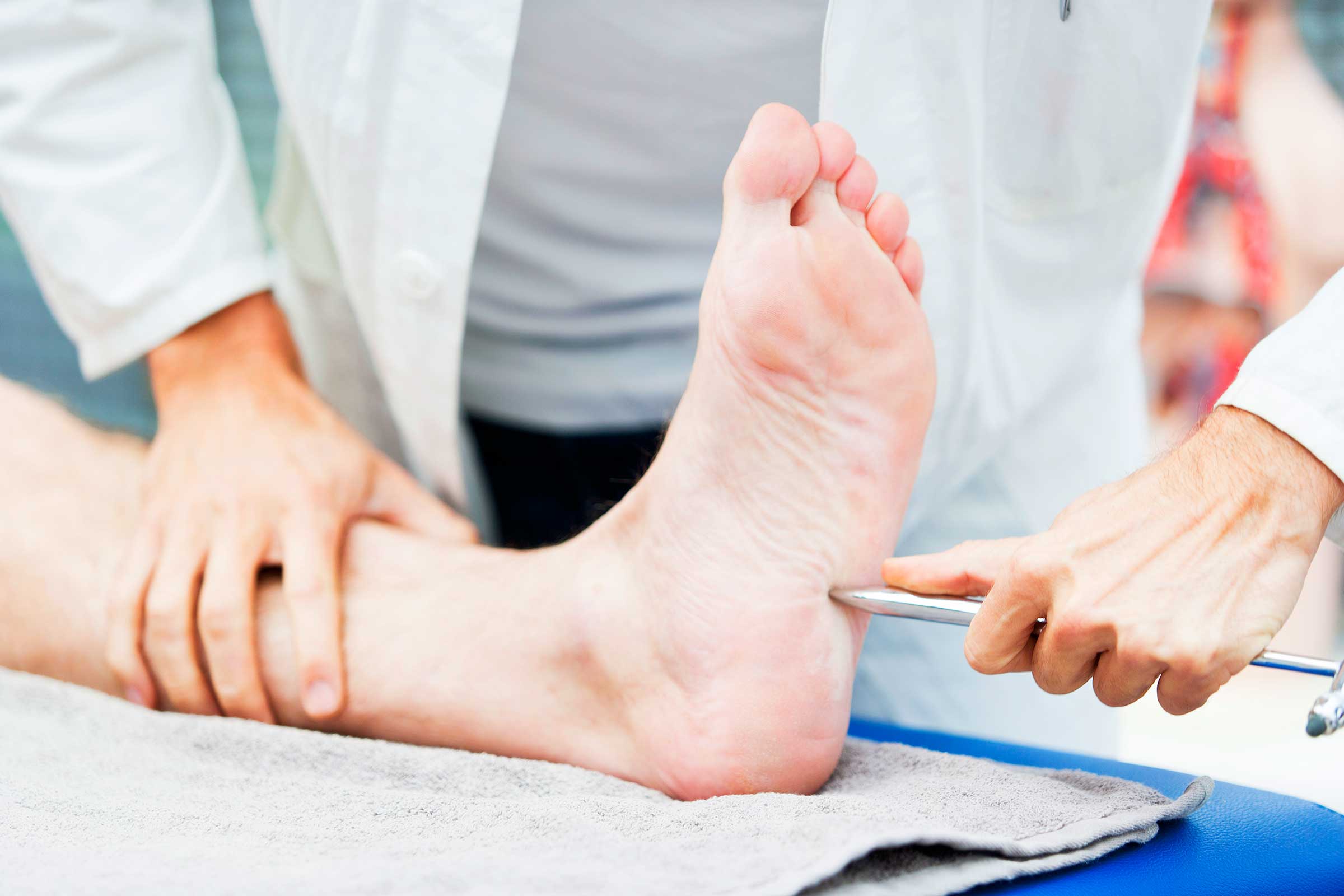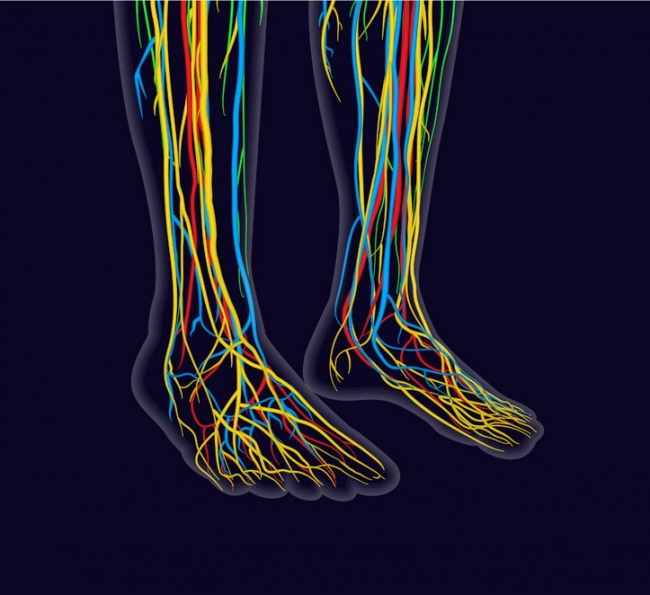If you’re among the more than 20 million Americans who suffer from this kind of nerve damage, you’ll want to try the natural remedies that really work instead of jumping to medications that may not.
If you’ve complained to your doctor about prickling in your fingers and numbness or cold in your feet, you might have been diagnosed with peripheral neuropathy, a condition involving damage to the peripheral nervous system, the nerves running from the brain and spinal cord to the rest of the body.
Peripheral neuropathy symptoms can seem scary, painful, and difficult to deal with. They include numbness and a prickling or tingling sensation in your feet or hands, which can spread to the legs and arms. Other signs are sharp, throbbing, freezing or burning pain, extreme sensitivity to touch, weakness, and a lack of coordination that can lead to falls.
So if your doctor recommends medication to treat peripheral neuropathy, which may be caused by diabetes (called diabetic neuropathy), some medications (especially those used to treat cancer), other diseases (including kidney, liver, and autoimmune disease), and even vitamin deficiencies, you might want to try some natural remedies first.
That’s because the current medications are no home run, according to The MedShadow Foundation, a nonprofit organization that raises awareness about medical conditions, side effects, and alternative therapies. The drugs to treat peripheral neuropathy include antidepressants and anti-seizure medications, though it is not clear how they work for nerve pain. Commonly prescribed medications include Neurontin (gabapentin), Lyrica (pregabalin), and Cymbalta (duloxetine). But not all patients benefit from these drugs and even if they do, many experience a host of significant side effects including fatigue, nausea, drowsiness, confusion, and weight gain or loss, especially if the dose is high enough to actually work (which often it’s not). “Many patients find the side effects of increased dosages intolerable,” Marlene Dodinval, executive director of The Foundation for Peripheral Neuropathy, a nonprofit in Buffalo Grove, IL, told the MedShadow Foundation
The good news: There are alternative, natural treatments and therapies that many patients have used to get pain relief. And as an added benefit, you’ll cut back on the number of prescription medications you may be taking at any given time. (These are the signs you may be taking too many prescription drugs.)
Talk to your doctor about trying some of these natural remedies for peripheral neuropathy:
1. Capsaicin:
Capsaicin, the active compound found in hot peppers, is thought to reduce chronic neuropathic pain by making nerves less sensitive to pain messages. Valerie Lloyd, a 65-year-old Alexandria, Va., resident, says she has found some relief for her peripheral neuropathy in a foot cream with capsaicin.
2. Water Aerobics:
This gentle workout improves cardiovascular circulation without putting pressure the joints, which may be painful. Water aerobics helped Lloyd feel better about her strength and state of mind.
3. Acupuncture:
Since acupuncture delivers pain relief, it’s no surprise that it can ease symptoms of peripheral neuropathy. Carolyn Hicks, a psychologist and landscape painter in Northampton, MA, found relief in acupuncture. She says the thin needle treatment gave her more energy and balance, and reduced symptoms such as numbness and tingling pain.
4. Wraps:
Elayne Goldstein, a 68-year-old retired teacher from Philadelphia, wears magnetic wraps around her stomach at night, because, she says,something compressing the pained area helps.
When trying the natural remedies above, it’s a good idea to keep a written account of how your pain changes, so you can track its effectiveness. Also, you may find that some of these natural treatments will work better for you than others. Be patient and don’t get discouraged. It may take a few days or a week of trying a new therapy before you start to feel relief.





